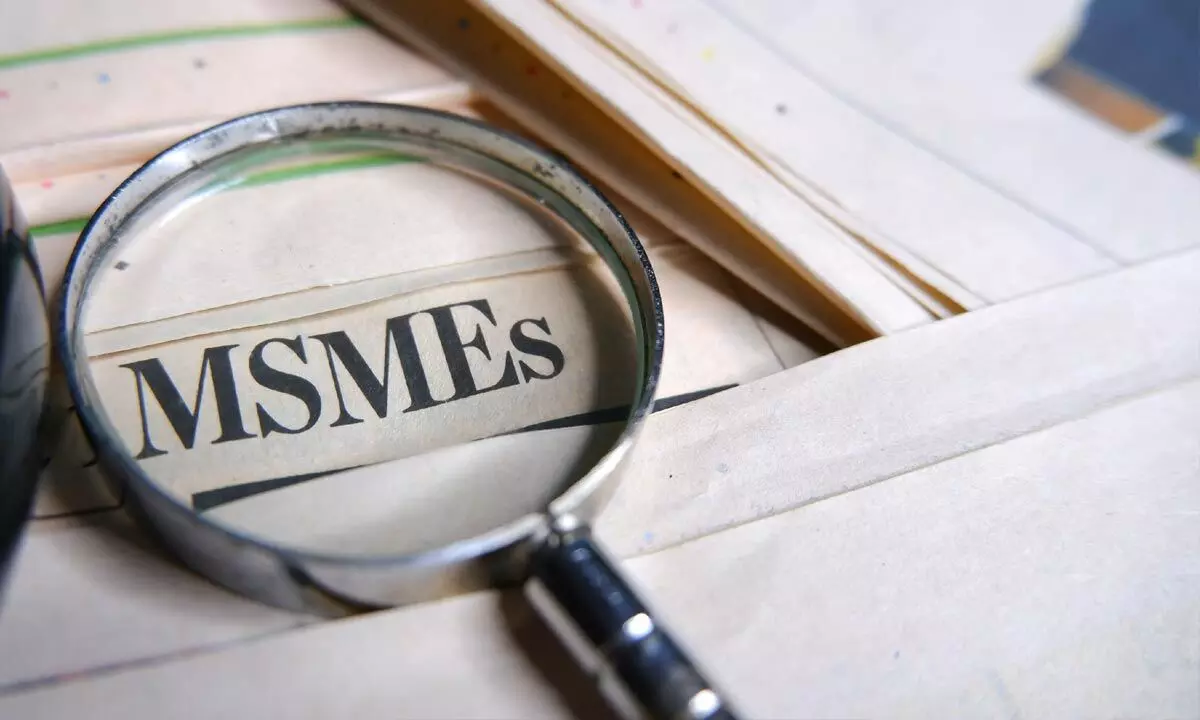Centre mulls changes in I-T Act to aid MSMEs

Representational image
The Centre would bring an amendment to the 43B of the Income-Tax Act, 1961, in the financial bill of the budget for the FY 2023-24 to help the small and micro industries.
Hyderabad: The Centre would bring an amendment to the 43B of the Income-Tax Act, 1961, in the financial bill of the budget for the FY 2023-24 to help the small and micro industries.
A new section (h) is to be included under section 43B of the IT Act. The new section is to contain "any sum payable by the assesses to a micro or small enterprise beyond the time limit specified in section 15 of the Micro, Small and Medium Enterprises Development (MSMED) Act 2006." In the proviso, after the words, "nothing contained in this section, [except the provisions of clause (h)]" is to be inserted." Speaking to The Hans India, Federation of Telangana Small (MSME) Industries Associations - FETSlA general secretary K Appi Reddy said the new change would benefit about one lakh small and micro-entrepreneurs across the country, giving them much-needed relief.
He said a proposal regarding this was submitted to Union Finance Minister Nirmala Sitharaman urging her to bring changes in the existing provisions of 43B of the IT Act. Once this comes into force, the delayed payments would be classified as statutory payments.
When a payment has not been paid within 90 days from the date of receipt and acceptance, such payments are to be qualified by the statutory auditor in his statutory audit report. So that it will be disallowed under the IT Act.
Also, further reversal of GST input tax credit along with interest from the date of the input is availed.
"It will help prevent an intentional delay in making payments to the small and micro-entrepreneurs by the big industries," he added.
It may be mentioned here that Section 43B of the Income Tax Act, 1961, specifies provisions concerning profits and gains of business or professional PGBP. It allows certain payments as expenses.
Accordingly, the section covers, contributions made towards employee benefits, tax payments, bonuses or commissions, interest payable on loans and advances, leave encashment, payments to Indian Railways and interest payable on loans.
Payments made under this qualify as statutory payments and the payments can be claimed as expenses in the year of payment itself. Once a statutory auditor notifies the delayed payments, it will reflect in their profit and loss account. There will be fear and timely payments would be made to the MSE units, he added.
Giving reasons for pressing the change, he said that the MSE are small persons. They have no might to mount pressure on the big industries for timely payments Even in the case of GST input tax, payments are delayed to the MSE ranging from 45 to 90 days. On several occasions, the delay in payments goes up to six months.



